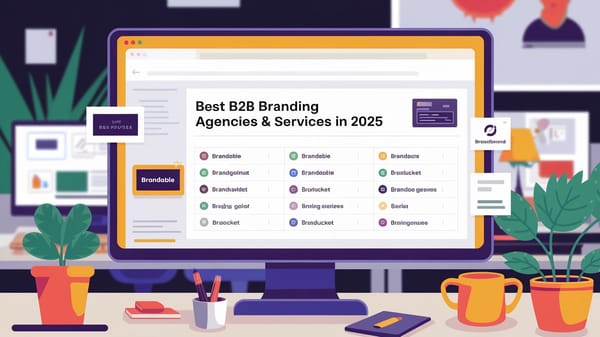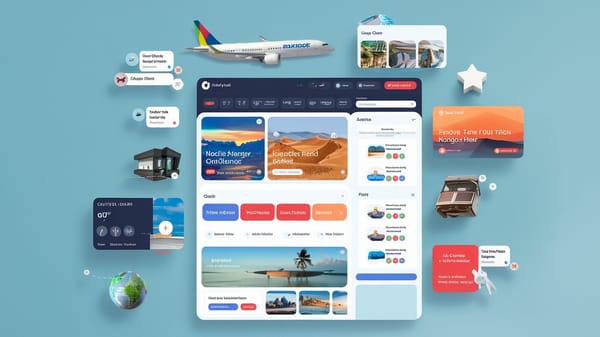What is Personal Selling: Everything You Need To Know

In the dynamic landscape of modern business, personal selling emerges as a pivotal strategy that transcends traditional sales methodologies. Personal selling is a direct, personalized approach to sales that involves face-to-face interaction between a salesperson and a potential customer. This method is not confined to in-person meetings; it also encompasses communication via email, phone, or video, making it versatile in its application across various industries.
Personal selling is particularly prevalent in business-to-business (B2B) contexts, but it also finds relevance in retail and trade selling. The essence of personal selling lies in its ability to humanize the sales process, allowing businesses to address the specific challenges and needs of their prospects with tailored solutions. This approach contrasts with more impersonal sales techniques, as it focuses on building relationships and trust, which are crucial for long-term customer loyalty and satisfaction.
However, personal selling is not without its challenges. It is resource-intensive, requiring significant time and effort to research and engage with potential customers. Despite these challenges, the personalized nature of personal selling often results in stronger relationships and higher close rates, making it a worthwhile investment for businesses aiming for sustainable success.
You can also visit Oncely.com to find more Top Trending AI Tools. Oncely partners with software developers and companies to present exclusive deals on their products. One unique aspect of Oncely is its “Lifetime Access” feature, where customers can purchase a product once and gain ongoing access to it without any recurring fees. Oncely also provides a 60-day money-back guarantee on most purchases, allowing customers to try out the products and services risk-free.
Oncely are hunting for the most fantastic AI & Software lifetime deals like the ones below or their alternatives:

Table of Contents
- Understanding Personal Selling
- Definition and Core Characteristics
- Techniques in Personal Selling
- Benefits of Personal Selling
- Challenges in Personal Selling
- Role in Modern Business Strategies
- Advantages of Personal Selling
- Building Long-Term Customer Relationships
- Higher Conversion Rates
- Gaining Valuable Customer Insights
- Enhanced Customer Satisfaction and Trust
- Flexibility and Adaptability
- Disadvantages of Personal Selling
- High Cost of Implementation
- Limited Reach and Scalability
- Dependency on Salesperson's Skills
- Time-Consuming Process
- Potential for High Pressure and Customer Discomfort
Understanding Personal Selling
Definition and Core Characteristics
Personal selling is a direct, face-to-face interaction between a salesperson and potential buyers, aimed at persuading them to purchase a product or service. This method is particularly effective in industries where products or services are complex and require detailed explanation. Personal selling involves a dynamic process where the salesperson can modify their pitch based on the buyer's reactions, addressing concerns and answering queries in real-time (Animas Marketing).
The essence of personal selling lies in its ability to build genuine trust and rapport with customers. Salespeople must have a comprehensive understanding of the products or services they are selling and the ability to make personal, emotional connections with prospects. This approach is not limited to face-to-face meetings but can also occur over the phone or through video calls (Salesforce).
Techniques in Personal Selling
Personal selling employs various techniques to effectively engage potential customers. One key technique is relationship building, where the salesperson positions themselves as a trusted advisor rather than just a seller. This involves understanding the customer's needs and challenges and providing tailored solutions. Another technique is handling objections, where salespeople address any concerns or hesitations the prospect may have, thereby increasing the likelihood of closing a sale (Mailchimp).
Salespeople also use personalized communication to build trust and develop strong relationships with clients. This involves detailed and customized interactions that cater to the specific needs and preferences of the customer. Additionally, personal selling allows for the assessment of customer needs and the delivery of appropriate support, which can lead to higher conversion rates and customer satisfaction (HubSpot).
Benefits of Personal Selling
Personal selling offers several advantages that make it a valuable component of modern business strategies. One of the primary benefits is the ability to build long-term customer relationships. By establishing trust and rapport, personal selling lays the foundation for repeat business and referrals. This approach also provides valuable customer insights, as salespeople gather information about customer needs, preferences, and pain points through personal interactions (Sparkle).
Another significant benefit is the higher conversion rates associated with personal selling. The one-on-one nature of this approach allows salespeople to address specific objections and concerns, increasing the likelihood of closing a sale. Furthermore, personal selling can enhance brand awareness and customer loyalty, as customers are more likely to do business with people they know, like, and trust (Mailchimp).
Challenges in Personal Selling
Despite its advantages, personal selling also presents several challenges. One of the main challenges is the high cost associated with maintaining a sales force. Personal selling involves person-to-person contact, which can result in a high cost-per-action (CPA). For instance, in some industries, it costs over $300 each time a salesperson contacts a potential customer (Art of Marketing).
Another challenge is the resource-intensive nature of personal selling. Salespeople often spend significant time researching and preparing for interactions with potential customers. This can make personal selling seem more expensive on the front end, although the long-term payoff is often worth the investment. Additionally, personal selling may not reach a large pool of people at once, as it focuses on identifying and engaging with qualified leads (HubSpot).
Role in Modern Business Strategies
In the context of modern business strategies, personal selling plays a crucial role in complementing digital marketing efforts. While digital marketing offers wide reach and efficiency, personal selling provides the depth and personal touch that many customers crave. This approach is particularly effective for high-end products and services, such as cars and homes, where detailed explanations and personalized interactions are essential (Animas Marketing).
Personal selling is also instrumental in building a personal brand strategy. By engaging directly with customers, salespeople can enhance brand awareness and customer loyalty. This approach is especially valuable in business-to-business (B2B) selling, where strong relationships with members of the purchasing company are crucial for sales success (Mailchimp).
In summary, personal selling remains a vital component of business strategies, offering unique advantages in building relationships, increasing conversion rates, and gaining customer insights. Despite its challenges, the personalized nature of personal selling makes it an indispensable tool for businesses aiming to achieve long-term success and customer satisfaction.
Advantages of Personal Selling
Building Long-Term Customer Relationships
Personal selling is instrumental in establishing and nurturing long-term customer relationships. This approach allows sales representatives to engage directly with customers, fostering trust and rapport through personalized interactions. By understanding and addressing individual customer needs, salespeople can create a sense of loyalty and commitment, which is crucial for repeat business and referrals. According to Sparkle.io, personal selling not only drives sales but also builds emotional connections that enhance customer loyalty. This relationship-building aspect is particularly beneficial in industries where customer retention is critical, such as financial services and real estate.
Higher Conversion Rates
The personalized nature of personal selling significantly enhances conversion rates. Unlike mass marketing techniques, personal selling involves one-on-one interactions that allow salespeople to tailor their pitches to the specific needs and preferences of each customer. This customization increases the likelihood of addressing customer objections and closing sales. As noted by Mailchimp, personal selling is a powerful tool for increasing sales because it builds trust and satisfaction, which are key drivers of conversion. The ability to adapt the sales message in real-time and provide immediate responses to customer queries further boosts the effectiveness of this approach.
Gaining Valuable Customer Insights
Personal selling provides businesses with valuable insights into customer preferences, needs, and pain points. Through direct interactions, salespeople can gather detailed information about customer behavior and feedback, which can be used to refine products, services, and marketing strategies. This feedback loop is essential for continuous improvement and innovation. As highlighted by Marketing Easier, personal selling allows businesses to understand cultural differences and competencies, especially in international markets, thereby enhancing their ability to meet diverse customer needs.
Enhanced Customer Satisfaction and Trust
The direct communication involved in personal selling helps build customer satisfaction and trust. Customers appreciate the personalized attention and the opportunity to have their specific concerns addressed. This approach not only enhances the customer experience but also positions the salesperson as a trusted advisor rather than just a vendor. According to Salesforce, personal selling requires salespeople to build relationships based on trust and problem-solving, which is more effective than superficial interactions. This trust-building aspect is crucial in industries where customers rely heavily on expert advice, such as healthcare and technology.
Flexibility and Adaptability
Personal selling offers a high degree of flexibility and adaptability, allowing salespeople to adjust their strategies based on real-time feedback and changing customer needs. This adaptability is particularly advantageous in dynamic markets where customer preferences and competitive landscapes are constantly evolving. As noted by Close.com, personal selling can be conducted through various channels, including face-to-face meetings, phone calls, and video conferencing, providing salespeople with multiple avenues to reach and engage customers. This flexibility ensures that sales efforts remain relevant and effective, regardless of external changes.
In summary, personal selling offers numerous advantages that make it a valuable component of modern business strategies. By focusing on building relationships, enhancing conversion rates, gaining customer insights, and providing flexibility, personal selling helps businesses achieve sustainable growth and competitive advantage.
Disadvantages of Personal Selling
High Cost of Implementation
Personal selling is often associated with significant costs, which can be a major disadvantage for businesses. The expenses involved in personal selling include travel costs, accommodation, and the time investment required for face-to-face meetings. These costs can be substantial, especially when compared to other sales methods such as email marketing or telesales, which require less direct interaction and can be automated to a certain extent. According to Mailshake, the expense of personal selling is a critical factor to consider, as each face-to-face meeting demands a higher investment from both the salesperson and the potential customer. This financial burden can be particularly challenging for small businesses or startups with limited budgets.
Limited Reach and Scalability
Another significant disadvantage of personal selling is its limited reach and scalability. Personal selling typically involves one-on-one interactions, which means that a salesperson can only engage with a limited number of prospects at any given time. This limitation contrasts sharply with digital marketing strategies, which can reach a vast audience simultaneously. As noted by Salesforce, personal selling requires a more time-intensive approach, which can hinder a company's ability to scale its sales efforts quickly. In industries where rapid growth and market penetration are crucial, relying solely on personal selling may not be the most effective strategy.
Dependency on Salesperson's Skills
The success of personal selling heavily depends on the skills and abilities of the salesperson. This dependency can be a disadvantage because it introduces variability in the sales process. A highly skilled salesperson can build strong relationships and close deals effectively, while a less experienced or less skilled salesperson may struggle to achieve the same results. As highlighted by Mailchimp, personal selling requires interpersonal skills and expertise to persuade leads to buy products and services. This reliance on individual performance can lead to inconsistent sales outcomes and may necessitate ongoing training and development to maintain a high level of sales proficiency.
Time-Consuming Process
Personal selling is inherently time-consuming, which can be a drawback in fast-paced business environments. The process involves multiple stages, including prospecting, meeting with potential customers, understanding their needs, addressing objections, and negotiating terms. Each of these stages requires careful attention and can take considerable time to complete. As described by Salesforce, personal selling requires more time and care to finesse compared to other sales methods. This extended timeline can delay the sales cycle and may not align with the urgency of certain business opportunities or customer expectations.
Potential for High Pressure and Customer Discomfort
Personal selling can sometimes lead to high-pressure sales tactics, which may result in customer discomfort or dissatisfaction. The direct interaction between the salesperson and the customer can create a situation where the customer feels pressured to make a purchase decision. This pressure can be counterproductive, as it may lead to buyer's remorse or damage the long-term relationship between the customer and the company. According to Mailchimp, personal selling focuses on building relationships and tailoring the sales approach to the customer's specific needs and preferences. However, if not executed carefully, the personal nature of the interaction can become intrusive, leading to negative customer experiences.
In summary, while personal selling offers several advantages, it also presents notable disadvantages that businesses must consider. The high cost of implementation, limited reach and scalability, dependency on the salesperson's skills, time-consuming nature, and potential for high-pressure tactics are all factors that can impact the effectiveness of personal selling as a sales strategy. Businesses should weigh these disadvantages against the benefits to determine the most appropriate sales approach for their specific needs and market conditions.





